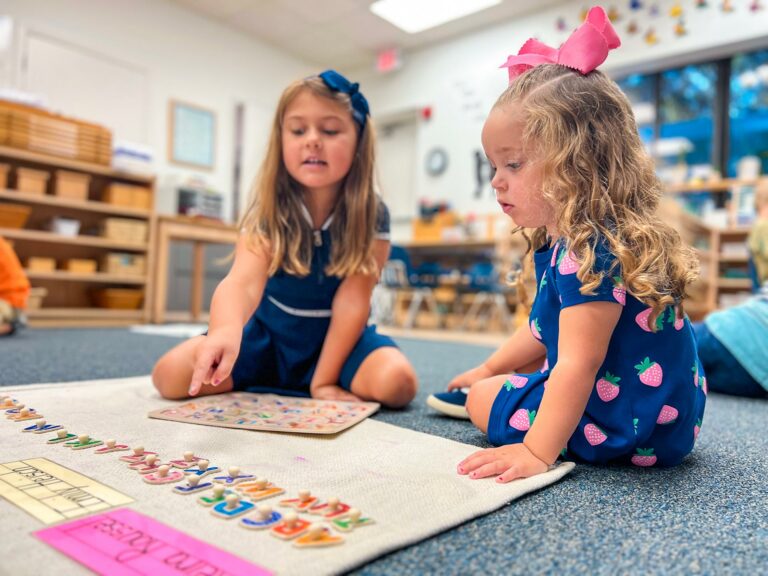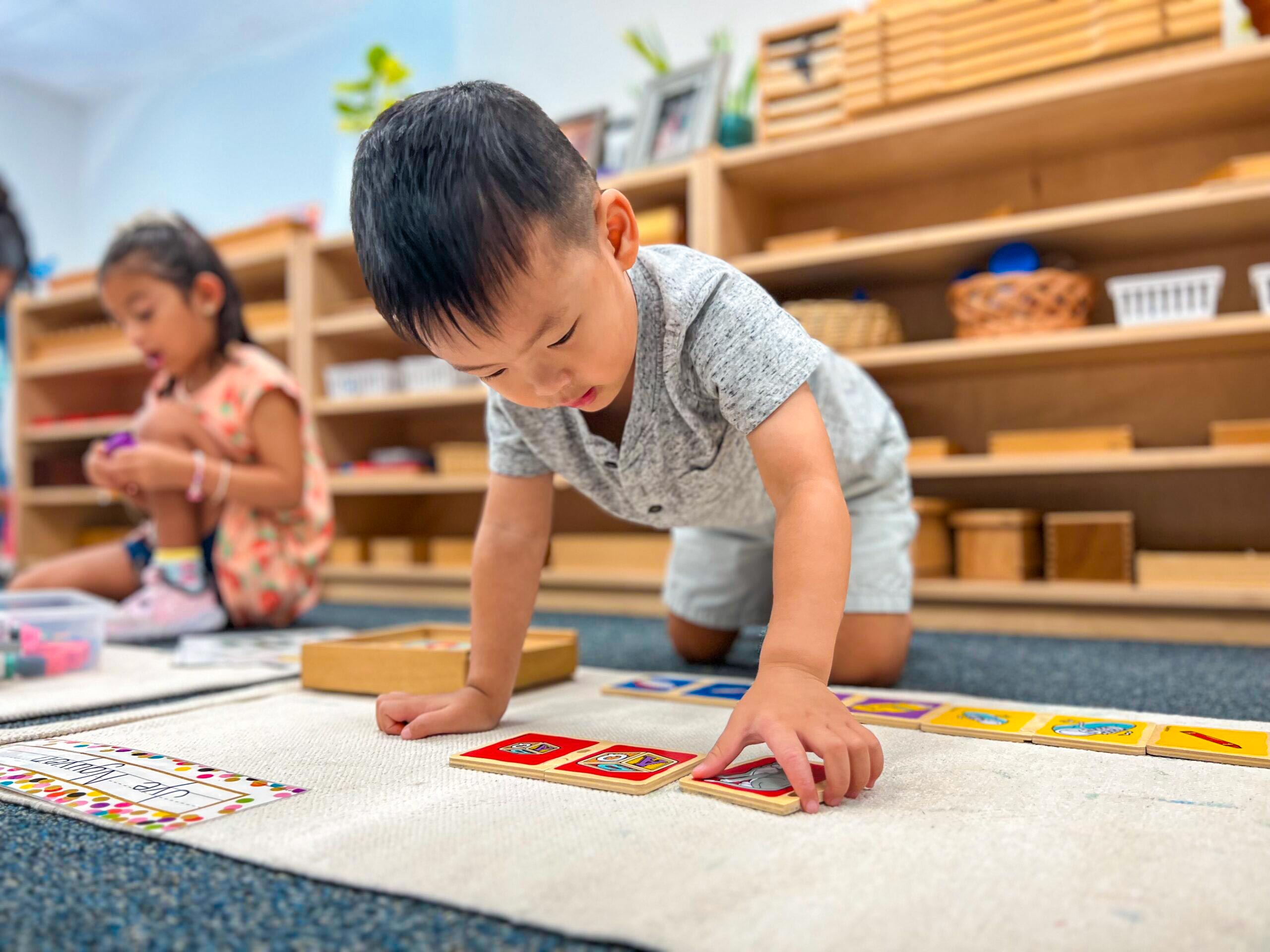Montessori education is a unique and innovative approach to learning that has captured the hearts and minds of educators, parents, and students worldwide. Founded by Dr. Maria Montessori over a century ago, this method emphasizes independence, self-directed learning, and a nurturing environment. In this blog post, we'll take you inside the Montessori classroom and provide a glimpse into the daily life of a Montessori student.
The Morning Routine
A typical classroom day often begins with a warm and welcoming atmosphere. After breakfast, the students, aged 12 months to 6 years old, start their day by choosing their own activities. This freedom of choice is one of the core principles of Montessori education. It encourages independence and allows each child to follow their interests.
Montessori classrooms are meticulously prepared environments with carefully arranged learning materials on shelves. These materials are designed to be self-correcting, allowing children to learn independently. In the morning, you might find a child working with wooden geometric shapes, another counting colorful beads, and another engrossed in a puzzle.
Self-Directed Montessori Learning
One of the teaching of Montessori education is the concept of self-directed learning. We often refer to our teachers as guides or facilitators rather than traditional instructors because they observe each child's interests and abilities and provide guidance and support when needed.
Students can choose their activities during the morning work period and work at their own pace. This fosters a sense of responsibility and a love for learning. If a child struggles with a particular task, the teacher is there to offer assistance, but the emphasis is on letting the child explore and discover independently.
The Role of Mixed-Age Groups
Montessori classrooms are typically composed of mixed-age groups. This multi-age environment allows younger children to learn from their older peers and older children to reinforce their knowledge by teaching younger students. It creates a sense of community and cooperation rather than competition.
Imagine a 5-year-old helping a 3-year-old learn how to pour water or a 4-year-old explaining the intricacies of a map to a 6-year-old. This dynamic promotes social and emotional development and helps children better understand the subjects they're learning.

Outdoor Exploration
At Lakewood Montessori, we greatly emphasize the connection between children and the natural world. Our classrooms include outdoor spaces where students can explore and learn through hands-on experiences. These outdoor environments often feature gardens, playgrounds, and nature-based activities. These outdoor activities are seen as extensions of the classroom, providing opportunities for learning and discovery in a natural setting.
The Absence of Traditional Grades
You won't find traditional grades or standardized tests here. Instead, assessment is continuous and holistic. Teachers observe each child's progress, document their achievements, and provide individualized feedback. The focus is on the whole child's development—academically, socially, and emotionally.
The Afternoon and Closure
As the morning work period ends, students often gather for a group activity or circle time. This may involve storytelling, music, or discussions that tie into the day's activities. It's a time for reflection and community-building.
After lunch and outdoor play, the afternoon may include additional individual or group activities and more outdoor exploration. Students clean up their workspaces and materials as the day ends, promoting responsibility and a sense of order.
The Montessori Difference
A day in a Montessori student's life is filled with curiosity, exploration, and self-discovery. It's a day where children are encouraged to take ownership of their learning, develop independence, and collaborate with their peers. Montessori education is not just a method; it's a philosophy that shapes how children learn and grow.
Whether you're a parent considering Montessori education for your child or simply curious about this innovative approach, experiencing a day in the life of a Montessori student offers a glimpse into a world where education is not just about acquiring knowledge but about nurturing the whole child.
If learning about a day in the life of a Montessori student has piqued your interest, and you're considering this unique educational approach for your child, we encourage you to take the next step. We invite you to schedule a tour, talk to teachers and administrators, and observe a classroom in action. This hands-on experience will provide valuable insights into how Montessori education can benefit your child's development.

